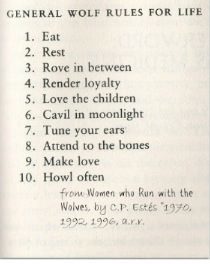She is tall and has an intricately patterned tattoo of small raised dots on her face. She smiles, says hello, extends her hand in greeting, and we walk together to the room where we will work on her English language skills. To get an idea of her vocabulary, we begin with some pictures. She knows the colour black, but it’s the only colour she can identify. She identifies some of the items in the pictures I show her in English, but most of them she identifies in her mother tongue, an obscure language that is one of many indigenous languages in her country of origin. I try out her language with each image, repeating after her, which, judging from her smile, seems to either please or amuse her. Then I say the word I’m after in English, which she repeats after me.
Though she has grand-children, she has never been to school. It’s slow work, and the sounds are difficult for her, the shape of our language on paper even more so. But she is eager and determined and seems to like it. In her nascent English, she tells me I should visit her country, that I would be a good student. I feel honored, and tell her she is a good student.
Then, shaking her head, she says, “my country, war. Always, always, war. Bad.”
I ask if she has family. “Husband, dead. Sons, dead. War.”
I try to take this in. I can’t. I feel an immense heaviness though, so perhaps I have taken it in. It has tapped into a feeling I carry around a lot sometimes, a feeling that the world is darker and bigger and crueler than I once believed.
I tell her I’m very sorry, and we resume our work. “What did you have for breakfast?” I ask. She searches for words. I prompt her. “Toast?” She nods. “Do you like jam on your toast?” She looks at me blankly, then out the window, where a small group of men are standing on the sidewalk smoking. The sun is shining, but they are wearing toques and winter coats. “Cold?” she asks. “Yes, it’s cold outside.”
“Cold outside,” she echoes. Pointing, I say, “they are outside; we are inside. They are cold; we are warm. My shirt is black; your shirt is red. This is my bag; that is your book.” They, we, mine, yours, this, that. She echoes me. I ask what colour her shirt is. “Your shirt is red,” she says. “No, my shirt is black, your shirt is red.” Her face lights up and she points at herself. “My shirt is red!” Bingo.
In response to an image of a sea turtle, her eyes widen in horror, and, shaking her head, she says, “bad.” Then she half mimes, half tells me a story of one lying in wait for a swimmer and snapping his toes off, blood everywhere. I’m skeptical, and tell her no, that can’t be, I swam with sea turtles once. Her eyes widen further. They don’t bite, I tell her. She insists they do. I check it out later, and yes, some of them do.
Sometimes when I arrive she is eager and waiting, ready to display her completed homework. She has moved from barely knowing her alphabet, to proudly pulling it out at the start of a recent session and going through it almost perfectly.
Other times, she is tired, headachy, foggy. “Medication,” she says. She shows me her written work. I tell her it’s good. “You tell me, if no good,” she insists. I promise I will.
I show her a picture of chocolate ice cream. “Not good,” she tells me. “Cold.” I tell her I love ice cream in summer. She laughs. “Yes, in summer. February now? Then March? Then… summer in June? Go outside in June, eat ice cream in June. In my country, not cold.”
One day she tells me about the fire alarm that has gone off in her building since I last saw her. “Too cold, not go outside,” she says, “I die.”
We talk about many things over the course of our meetings, much of which neither of us understand fully. But we make progress. She wants to know where I live, and is pleased that I am close by. She is going to be moving, and wants to make sure I will come to her new place too. One day she smiles at me and says “You are beautiful,” and I’m not sure I heard her correctly. She repeats it, clearly. I tell her she is beautiful also. She smiles. “You come tomorrow,” she asks? “I’ll come again in two days,” I tell her. She smiles again, and when I leave, instead of extending her hand as she normally does, she reaches out and hugs me.
Her warmth and courage might just be antidote enough for the heaviness I feel at the random cruelty of the universe.



